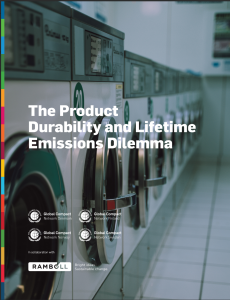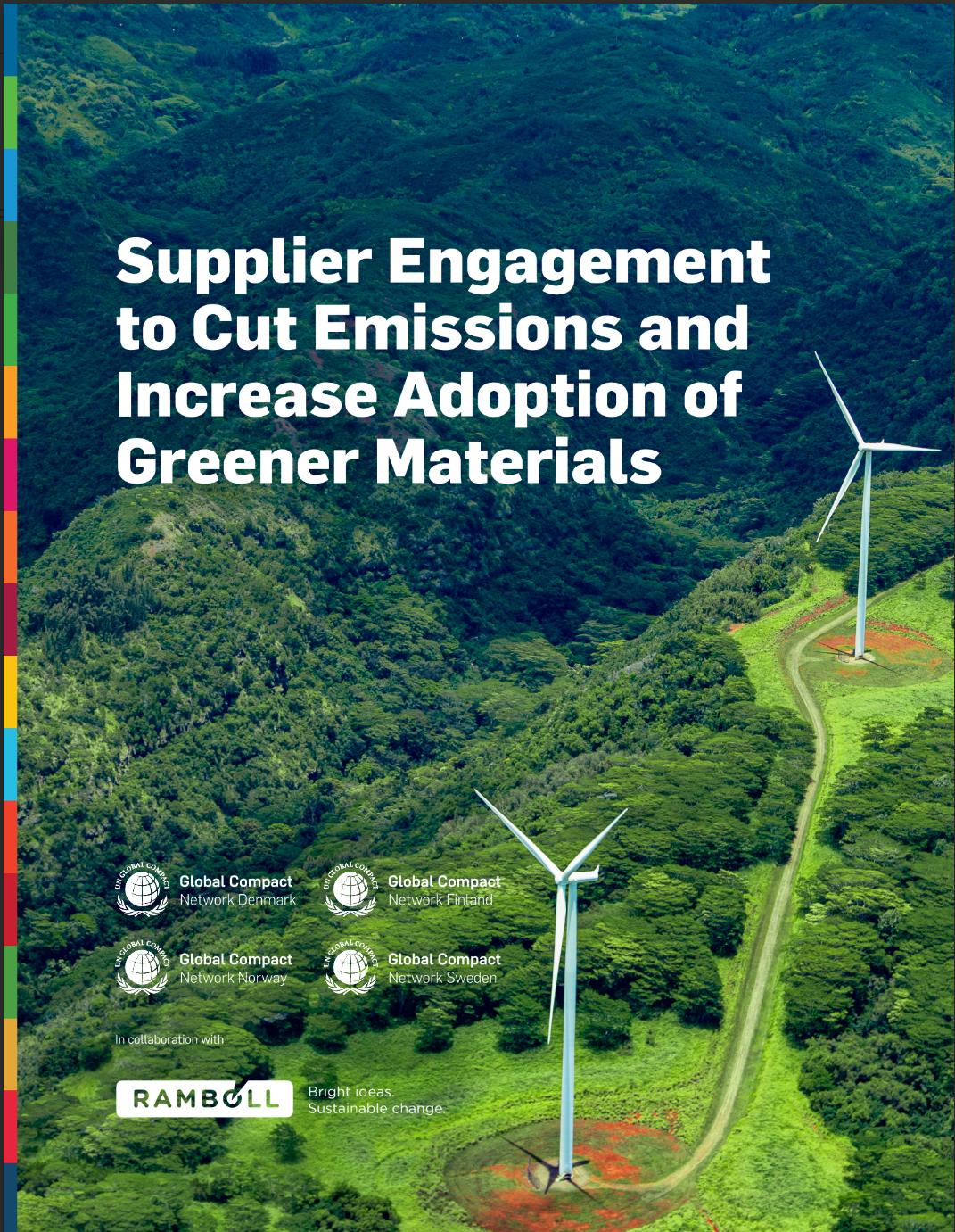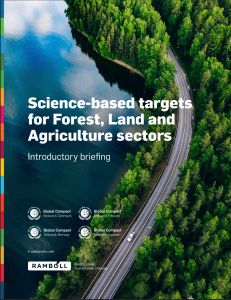During 2023, the UN Global Compact’s network in Denmark, Finland, Norway and Sweden arranged a number of «Peer Learning Groups» with leading Nordic companies in order to delve deeper into and seek solutions to the challenges faced by companies in setting and achieving scientifically based climate targets according to SBTi (SBTs). Approximately 60 companies within the UN Global Compact were involved in this project, all of which have approved SBTs or formally committed to setting SBTs.
Based on the discussions between the companies and insights from subject experts at Rambøll, we have published a series of briefs outlining some of the challenges and best practices adopted by these companies. These briefs are intended to provide practical support to sustainability managers and related decision-makers as they work to set and achieve science-based climate targets.
Read more about the briefs below and view recordings from the webinar series.
 The Product Durability and Lifetime Emissions Dilemma
The Product Durability and Lifetime Emissions Dilemma
With increasing pressure from the outside world for products to be made more sustainable through an extended lifespan, a dilemma arises for companies with energy-driven products. Increasing the service life means that greenhouse gas emissions during the product’s use phase increase. This results in a dilemma, as the increased product lifespan can paradoxically lead to companies with energy-driven products risking increasing the product’s emissions over its lifespan. This brief dives deep into these challenges and provides guidance that helps companies to extend product life and at the same time keep greenhouse gas emissions down.
Download the brief here.
Watch the webinar:

Supplier Engagement to Cut Emissions and Increase Adoption of Greener Materials
Companies that supply physical products can often trace a signification portion of their greenhouse gas emissions to the supply chain. However, reducing these emissions is difficult as supply chains are often long and complex. This brief provides guidance on how companies can reduce their greenhouse gas emissions in the supply chain by looking at challenges and proposed solutions linked to supplier collaboration, data handling, and measures to increase the degree of green material selection in the company’s products and supply chain.
Download the brief here.
Watch the webinar:

Science-Based Targets for Forest, Land and Agriculture (FLAG) sectors: Introduction
This brief provides an introduction to science-based targets for land-intensive operations and clarifies which companies are expected to set FLAG science-based targets. The brief also highlights central challenges and gives recommendations linked to the management of greenhouse gases according to the GHG Protocol and the Science Based Targets Initiative’s (SBTi) FLAG guidelines.
Download the brief here.
Watch the webinar:
This project was a collaboration with Rambøll Management Consulting and was made possible with funding from the Nordic Council of Ministers.










